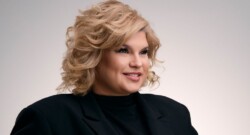Author: Tamara Mrázová
Entrepreneurs, Take a deep breath: Balance Business and Your Personal Life with these hacks!
Entrepreneurship is an exciting and rewarding journey, but it comes with significant challenges, especially when it comes to balancing business leadership with personal well-being. Many women entrepreneurs find themselves juggling multiple roles—CEO, mentor, partner, parent, and friend—while striving to maintain their own health and happiness. The pressure to succeed in business while fulfilling personal commitments can be overwhelming, but with the right strategies, achieving balance is possible. Prioritize Time Management Effective time management is crucial for balancing business and personal life. Start by setting clear boundaries between work and personal time. Define specific work hours and honor them, ensuring that personal time remains undisturbed. Use time-blocking techniques to schedule key business tasks while allocating time for self-care, family, and relaxation. Leveraging technology can also be a game-changer. Utilize digital planners, project management tools, and automation to streamline workflows and increase efficiency. Delegation is another powerful tool—identify tasks that can be outsourced or assigned to team members so that you can focus on high-impact activities. Remember, time is a finite resource, and how you use it determines your overall well-being. Entrepreneurs Set Realistic Goals and Expectations Many entrepreneurs fall into the trap of overcommitting and stretching themselves too thin. Setting realistic and attainable goals is essential for reducing stress and maintaining motivation. Break large goals into smaller, actionable steps and celebrate progress along the way. Acknowledge that success takes time and avoid comparing your journey to others’. Perfectionism can also be a significant roadblock. Instead of striving for perfection, focus on progress and adaptability. Understand that mistakes and setbacks are part of growth, and give yourself the grace to learn and evolve. Read also: Tea is better for you than one might think Prioritize Self-Care and Mental Well-Being Running a business requires stamina, creativity, and resilience, all of which are fueled by self-care. Ensure you are getting enough rest, exercise, and nutrition to sustain your energy levels. Incorporate mindfulness practices such as meditation, yoga, or deep breathing to manage stress effectively. Building a strong support network is equally important. Surround yourself with mentors, friends, and fellow entrepreneurs who understand your challenges and can provide guidance and encouragement. Seeking professional help when needed—whether through therapy, coaching, or business advisory—can also be a valuable investment in your mental well-being. Entrepreneurs Maintain a Healthy Work-Life Integration Rather than striving for a rigid work-life balance, entrepreneurs consider adopting a work-life integration approach. This means allowing work and personal life to coexist in a way that aligns with your values and priorities. For instance, if your business allows, work from home occasionally to spend more time with family, or schedule work meetings around personal commitments. Being present in the moment is key. When working, focus fully on business tasks, and when spending time with loved ones, resist the urge to check emails or messages. Learning to disconnect and recharge will help prevent burnout and improve overall productivity. Take a deep breath and step back if needed. Know When to Step Back Entrepreneurs often feel the pressure to always be “on,” but taking breaks is essential for long-term success. Set aside regular time for vacations, hobbies, and personal interests that bring you joy. Taking a step back from the business occasionally can provide fresh perspectives and renewed motivation. If burnout starts creeping in, recognize the signs early and take action. Delegate more responsibilities, reassess your workload, and adjust your priorities as needed. Sustainable success comes from pacing yourself rather than constantly pushing beyond your limits.
ETFs are not just for male investors. EVERYTHING you need to know to start investing into ETFs.
Investing can feel overwhelming at first, especially when you’re not sure where to begin. Are you a seasoned investor? Or just dipping your toes into the world of finance? Either way, Exchange-Traded Funds (ETFs) might be the perfect option for you. In this article, we’ll break down what ETFs are. How they work, and why they’re an excellent choice for women looking to take control of their financial future. What are ETFs? At their core, ETFs are a type of investment fund that hold a basket of assets, such as stocks, bonds, or commodities, which you can buy and sell on the stock market just like individual stocks. Think of them as a way to invest in a broad portfolio without having to buy each asset individually. For example, an ETF might track a stock market index, like the S&P 500, which includes the top 500 companies in the U.S. By purchasing an ETF that tracks this index, you’re effectively investing in all of those companies at once, making it a convenient way to diversify your investments. Why Should Women Consider ETFs? Easy to Diversify: One of the key benefits of ETFs is diversification. Instead of putting all your money into one stock or asset, you can spread it across a variety of investments, which helps to reduce risk. Diversification is especially important for women, who are more likely to live longer than men and need to make sure their money grows steadily over time. Low-Cost Option: ETFs tend to have lower fees compared to mutual funds, which is a big advantage for anyone looking to minimize the costs associated with investing. Since ETFs are passively managed, the management fees are typically lower, meaning more of your money stays invested. Flexibility and Liquidity: ETFs are bought and sold on the stock market during trading hours, just like individual stocks. This gives you the flexibility to buy and sell whenever you want, making them more liquid than other types of investment products. This flexibility is particularly appealing for women who may want to have access to their money. Anytime, in case of an emergency or if they want to make adjustments to their portfolio. Tax Efficiency: ETFs are generally more tax-efficient than mutual funds. This is because they are structured in a way that allows investors to avoid triggering capital gains taxes unless they sell their shares. For women looking to build long-term wealth, this tax efficiency can be a big advantage. Easy to Manage: Managing an ETF portfolio is relatively straightforward. Once you’ve made your initial investments, you can simply track your portfolio over time, rather than actively monitoring individual stocks. For busy women balancing careers, families, and personal goals, ETFs can make investing simpler and less time-consuming. How Can You Get Started with ETFs? Choose a Brokerage Account To invest in ETFs, you’ll need a brokerage account. There are many platforms available today, ranging from traditional brokerages to apps designed for beginners. Many offer zero-commission trading, which can help keep your costs down. Select Your ETFs Once you have your account set up, it’s time to choose which ETFs to invest in. You can find ETFs that focus on a variety of sectors, industries, or investment strategies. If you’re new to investing, consider starting with broad market ones. Such as those tracking the S&P 500 or total market indices, which offer a simple way to invest in a large portion of the market. Consider Your Goals and Risk Tolerance Like all investments, ETFs come with risk. The key is to make sure your investment choices align with your financial goals and risk tolerance. Women tend to be more risk-averse than men. It’s important to choose ETFs that fit your comfort level, especially if you’re planning for long-term goals like retirement. Stay Consistent The beauty of this type of investments is that they allow for regular contributions. If you set up automatic investments each month, you can grow your portfolio steadily over time. This “set it and forget it” strategy is particularly appealing for women who want to build wealth over time without constant monitoring. Read also: The most bizzare women’s rights Conclusion ETFs are an accessible, cost-effective, and flexible investment option that can help women build wealth for the future. ETFs offer a smart way to invest in both the short and long term. Whether you’re just starting out or looking to expand your portfolio, ETFs can be an excellent choice for women seeking financial security and growth. So, why not take the first step towards financial empowerment? With a little research and the right strategy, you can begin investing in ETFs today. Learn how to take control of your financial future!
Shocking Laws That Strip Women of Their Rights- Reality That Takes Your Breath Away
There are still many countries in the world where shocking laws restrict women’s rights and freedoms. These discriminatory laws are bizarre and outdated. Practices targeting women reflect deeply rooted cultural and social norms that often hinder progress in gender equality. Despite certain reforms in Saudi Arabia, such as allowing women to drive, the system of male guardianship continues to restrict women’s decisions regarding education, travel, and marriage. Without a male guardian’s approval, a woman cannot study, work, marry, or even call emergency services in case of need. Male oversight controls virtually every aspect of women’s lives in Saudi Arabia. Following the Taliban’s return to power in 2021, women’s rights in Afghanistan have been significantly curtailed. Girls above a certain age are forbidden from pursuing education, and women’s employment opportunities have been drastically limited. According to the latest laws, women are even banned from singing, reciting poetry, or reading aloud in public. Women’s voices A woman’s voice is considered intimate and, therefore, should hardly be heard. Additionally, women in Afghanistan must remain fully covered. Their clothing must not be thin, tight, or short, and it must conceal their entire body, including the face. Women are also prohibited from looking at men who are not their relatives. “WOMEN’S RIGHTS ARE HUMAN RIGHTS.” – HILLARY CLINTON In Yemen, shocking laws permit the marriage of girls at an extremely young age. Child marriages are common in the country, with at least a quarter of Yemeni girls marrying before the age of 15. The main drivers of these marriages include a lack of education and awareness. Impoverished Yemeni parents often marry off their young daughters in exchange for a large dowry. Tribal traditions also play a role, as families betroth their sons and daughters to cousins in hopes of protecting them from unwanted relationships. In Sudan, women face corporal punishment for violating strict laws on public behavior and dress codes. A well-known past case involved a Sudanese journalist who received 40 lashes for wearing trousers, which was deemed inappropriate attire. Read more: First Female Professor Was a Real Legend Bizarre and Absurd Laws Against Women Driving ban for women: Until 2018, women in Saudi Arabia were prohibited from driving. Although the ban has been lifted, women still face various restrictions on personal freedoms, including travel. They need a male guardian’s permission to travel abroad or obtain a passport. Dress code restrictions: In countries such as Iran, women are legally required to wear specific attire, like the hijab, in public. In Sudan, wearing trousers or revealing one’s hair in public is considered “improper” or “immoral.” Violating these dress codes can result in fines, corporal punishment, or even imprisonment. Inheritance inequality: In legal systems of certain Middle Eastern countries, women are entitled to a smaller share of inheritance compared to men, limiting their economic independence. Witchcraft laws: Some African countries have laws against witchcraft, often targeting women. These laws result in the persecution and punishment of women accused of practicing witchcraft. Women are subjected to torture, social exclusion, or even death. These laws are frequently used as a pretext for attacking widows or elderly women. “EVERY GIRL DESERVES A FUTURE FULL OF OPPORTUNITIES.” – PRIYANKA CHOPRA Marital rape laws In several countries, marital rape is still legal, as the law does not recognize a woman’s right to refuse sex with her husband. Many Asian and African nations lack specific legislation criminalizing marital rape. Divorce laws: In some Islamic countries, men can end a marriage simply by saying “talaq” three times, meaning “divorce.” Women, on the other hand, face far more complex and lengthy legal processes to obtain a divorce. Mobile phone bans: In some regions of India, local ordinances prohibit women from using mobile phones, claiming that mobile access “corrupts” their morality. Parental rights after divorce: In Japan, a woman who gives birth within 300 days of divorce automatically has the child registered under her ex-husband’s name, leading to severe legal and social complications. Husband’s permission laws: In Jordan, a woman needs her husband’s permission to work outside the home or start a business. Virginity tests: In Indonesia, Afghanistan, and Egypt, female students and job applicants are often forced to undergo “virginity tests” to prove their “purity.” These practices are widely condemned as human rights violations. Bans on Contraception and Abortion The strictest abortion laws exist in El Salvador, where abortion is completely prohibited without exceptions. Women and doctors face severe penalties, including long prison sentences. Nicaragua enforces a total abortion ban, even in cases of rape or when the mother’s life is at risk. The Dominican Republic also bans abortion in all circumstances, leading to unsafe illegal procedures. Malta remains the only European Union country with a complete ban on abortion without any exceptions. In Poland, abortion is permitted only in cases of life-threatening pregnancies, rape, or incest. In 2021, further restrictions sparked massive protests across the country. Read more: Women in Diplomacy. Sexy reality or a tough career? Strict abortion laws endanger women’s health and lives. Human rights organizations and medical groups are calling for legal reforms to ensure safe and legal access to abortion services. “THE FIGHT FOR WOMEN’S RIGHTS IS LONG AND REQUIRES COURAGE. BUT IT IS A FIGHT WORTH FIGHTING.” – MICHELLE OBAMA Fighting against unjust laws is challenging but can be successful through legal, cultural, and social activism. Collaboration and solidarity are crucial in this battle, as well as pressure from international organizations on governments to implement meaningful reforms. This article was conducted by our amazing journalist Alexandra Vrábelová.
Salary is not just a number on a paycheck. It reflects our value
How can you ask for a fair salary without fearing rejection from your employer? Is discussing salary during an interview a taboo or an essential part of a serious conversation? Salary communication can determine your job satisfaction, which is why it’s important to know how to approach it. Discussing Salary – A Topic That Worries Many Job Seekers. When should you ask? How much should you request? What if your question discourages the employer? These are concerns almost everyone has when going into a job interview. The truth is, knowing how to talk about salary is not just useful—it’s crucial. Salary conditions are one of the most important factors determining job satisfaction. Yet, many candidates hesitate to bring up this topic during an interview, fearing it might come across as inappropriate. In reality, a fair salary discussion is an integral part of the interview and can determine whether you receive the conditions you deserve. Why is talking about salary important? Aligning Expectations: Discussing salary helps you determine whether your expectations match the employer’s offer, preventing disappointment or misunderstandings later. Indicator of Job Value: Salary is not just a reward; it reflects how an employer values your experience, skills, and contributions. If the offered salary does not meet your expectations, it may indicate issues in the long-term working relationship. Transparency and Respect: Open discussions about salary demonstrate fairness and mutual respect. They show that the employer has nothing to hide and values your future. Why shouldn’t sou be afraid to talk about salary? Salary Is a Natural Part of Employment: Discussing salary is neither rude nor inappropriate—it’s a practical question, just like talking about job responsibilities. Interest in Salary Shows Professionalism: Asking about salary signals that you are prepared for a serious discussion about the job. It demonstrates that you know what you want and are clear about your needs. Healthy Self-Confidence: Don’t be afraid to express what you believe you deserve. If you have experience, education, and proven results, your market value is significant. Salary discussions are an opportunity to communicate that value. Read More: Ivana Heretik Vačoková: Slovaks are used to a system where sharing salary information is considered inappropriate… Is it appropriate to talk about salary at the first interview? Discussing salary during the first interview can be appropriate, but timing is key. If the employer brings it up, be prepared to respond clearly yet flexibly. If the topic is not mentioned, it is best to bring it up at the end of the interview or during a later round. A good way to discuss salary expectations in the first interview could be: “My expectations are aligned with the market and my experience. What salary range do you offer for this position?” Compensation discussion is not just about numbers—it’s about communication and professionalism. If you know your worth and what you offer, there’s nothing to fear. However, it is important to have realistic expectations. Research salaries in your industry, location, and sector before the interview. This will help you negotiate based on facts. If you ask for a higher salary, support your request with experience, certifications, past results, or unique skills you bring to the company. If the company cannot meet your full salary expectations, you can negotiate additional benefits such as flexible working hours, extra vacation days, or bonuses. Be prepared for a compromise, but ensure it still meets your needs. How to elegantly start a salary discussion? “Thank you for the detailed job description. Could we also discuss compensation and benefits?” “I want to ensure our expectations are aligned. Could we talk about salary conditions?” “What salary range do you have in mind for this position?” “How does your company’s compensation system work?” “Is there a set salary range for this position, or is there some flexibility?” “Could you tell me more about the compensation and benefits package?” How to handle vague answers, pressure, or an avoidant approach? Acknowledge that the company has a specific budget for the position but emphasize that it is completely reasonable to ask for at least an approximate salary range. Highlight that fair and open communication benefits both sides. Sometimes, doubts about an employer’s transparency arise due to certain red flags in the hiring process or company communication. Here are some warning signs: Lack of Clarity About the Position: If the employer does not provide a clear job description or expectations, the position may not be well-defined. Withholding Salary Information: If the employer refuses to disclose a payroll range or gives vague answers, it could indicate a lack of transparency in their pay policy. Inconsistent Answers: If different people in the company provide contradictory information about benefits, working hours, or expectations, it may be a red flag. Pressure to Make a Quick Decision: If the employer pressures you to decide immediately, they may be hiding potential job downsides. Avoiding Your Questions: If your questions are repeatedly dodged, it may indicate underlying issues. Overly Personal or Illegal Questions: Questions about marital status, children, or age are inappropriate and unprofessional. Lack of Mention of Employee Benefits: If the company does not offer benefits, flexible working hours, or development opportunities, it could be a warning sign. No Mention of Career Growth: If the employer does not discuss opportunities for growth or development, the company may not support long-term career advancement. What to do if you have doubts? If something is unclear, ask for more details. A transparent employer will be willing to provide answers. Check company reviews, ask acquaintances, or look at the company’s social media presence. If something feels “off,” take your time to evaluate the situation rather than rushing into a decision. If the employer is transparent, respectful, and open to communication, it’s a good sign. However, if you notice multiple warning signs, it may be best to continue your job search. Read More: The Pay Transparency Directive Could Reduce the Gender Pay Gap Differences in Net Salary (Source: platy.sk) Two employees with the same gross salary may not receive the same net pay. Various financial factors, bonuses, and deductions affect the final amount. Net Salary vs. Net Income Net Salary is the amount an employee receives after taxes and deductions. It does not include travel reimbursements, severance pay, pension contributions, or other non-wage benefits. Net Income is a broader term that includes all financial resources a person receives, not just from work. It may include rental income, investment returns, or employer-covered expenses that are not considered wages and are not taxable. Bonuses are counted in the gross salary since they are part of an employee’s total earnings for completed tasks or achievements. Employee Benefits Some taxable employee benefits include financial contributions for events like weddings or childbirth, gift vouchers, and personal use of a company car. Child Bonus In Slovakia, parents can claim a tax bonus for children, reducing their tax liability. This bonus is paid monthly or annually, and only one parent can claim it per child. Payroll Deductions According to the Labor Code, employers can only make specific wage deductions. Other deductions, such as for meal vouchers, require a written wage deduction agreement. Employers can contribute to employees’ pension savings. They must also provide meal benefits, either in the form of meal vouchers or a financial allowance covering at least 55% of the meal’s value. Annual Tax Settlement At the end of the tax year, an annual tax settlement is conducted to verify whether employees paid the correct amount of taxes throughout the year based on their actual income and tax reliefs. Federal Wage Garnishments Courts and administrative authorities can enforce wage garnishments (such as debt collection), which legally impact an employee’s net salary. Article conducted by our amazing journalist Veronika Samborská.
The Story of a First Female Professor Laura Bassi: What a historic milestone she achieved
When we think of women in science during the 18th century, Laura Bassi’s name shines brightly. This Italian physicist, professor and philosopher, Laura Maria Caterina Bassi Veratti (1711–1778), was not just a groundbreaking scientist but a persona who shattered the glass ceilings of her time. She was the first woman in the world to secure a university professorship. Also the second female character to earn a doctorate in philosophy. As a leading figure of the Enlightenment, her work inspired generations of scholars and thinkers. Born on October 31, 1711, in beautiful Italian Bologna, a city renowned for its academic and cultural legacy, Laura demonstrated exceptional intellect from a young age. In an era when education for women was rare, her family ensured she had access to learning. Her talents were quickly recognized by her tutor, the physician and philosopher Gaetano Tacconi, and later supported by Prospero Lambertini, the Archbishop of Bologna and future Pope Benedict XIV. At just 20 years old, in 1732, Laura achieved a historic milestone. She earned a doctorate in philosophy from the prestigious University of Bologna, becoming the first woman to attain such a degree at a European university. Read also: Let’s enhance our communication skills The World’s First Female Professor In April 1732, Laura publicly defended 49 theses in front of the professors of the University of Bologna. Having been considered a remarkable achievement, it led to her receiving her doctorate on May 12. Shortly after, she was appointed as the university’s first female professor. However, her role came with limitations—she was initially barred from teaching all-male classes. With the support of Lambertini, then Pope Benedict XIV, Laura obtained permission to give private lectures and conduct experiments, which the university granted in 1740. Her appointment as a professor of philosophy was revolutionary. In a time when women’s public engagement in academic life was almost unthinkable, Laura’s presence at the university caused a sensation. Despite restrictions, she embraced the challenge and used it as an opportunity to pave the way for others. A Life of Female Professor In 1738, Laura married Giuseppe Veratti, a physician and scientist. Their marriage was not only a personal partnership but also an intellectual collaboration. Together, they worked on scientific research, particularly in experimental physics and medicine, embodying a rare example of an intellectual marriage in that era. Laura was also a mother to eight children (some sources suggest as many as 12), yet she managed to balance her family life with a demanding scientific career. Her ability to combine both roles made her an inspiration for women aspiring to follow their ambitions. Scientist with Knowledge Laura Bassi wasn’t just a scientist; she was a passionate advocate for science. She organized lectures and experiments in her home, educating young scientists and students. During the Enlightenment, which emphasized spreading knowledge to the public, Laura stood out as a pioneer. Her lectures often focused on physics and natural sciences, and she was an avid proponent of Isaac Newton’s theories, which fascinated her. Not only did she excel in theoretical work, but her talent for experimentation set her apart. What a rarity at the time! A Legacy That Lives On Laura Bassi passed away on February 20, 1778. At the age of 66 she left the world likely due to health complications exacerbated by multiple childbirths. However, her legacy endures. As a pioneer for women in education and science, she broke barriers and proved that intelligence and ability transcend gender. In 2019, a research vessel was named RV Laura Bassi in her honor, reflecting the enduring impact of her contributions. Laura Bassi remains a symbol of courage, perseverance, and intellectual curiosity that continues to inspire today.
Pay Discrimination Persists, but the Issue of Wage Inequality is Gaining More Attention
Just a few days ago Equal Pay Day Slovakia conference was held in Bratislava. For the second time, event managed to draw the attention of companies, organizations, the media, and public. At the DoubleTree by Hilton hotel, people who care deeply about equality and want to make our society better came together to address a key issue: the fact that women work for free for about two months of the year. The Equal Pay Day conference, brought to Slovakia by Martina Novotná, founder of Akčné ženy, o.z., focused extensively on the topic of the “women’s euro.” Moderators, speakers, and ambassadors openly discussed wage inequality, but they did not stop there. The event was packed with positive examples from practice, tips for achieving equal pay in the workplace, and panel discussions on age discrimination, intergenerational collaboration, talent drain, and financial literacy. The Symbolism of Red: From Deficit to Strength “Two years ago, I would not have imagined waking up and going to bed with the colour red every day, but today I started my day with the slogan ‘We’re going red.’ Red symbolizes a deficit in accounting and represents the minus of Equal Pay Day. However, we view it positively. For us, it is a symbol of energy and female strength, a symbol of our ability to make changes, amplify women’s voices, and highlight the critical work they do,” said Martina Novotná, the organizer of Equal Pay Day Slovakia, in her opening remarks. Philip Morris Slovakia Returns as the General Partner “I am very proud that our company can support this event for the second year in a row. The topic of equal working conditions and equal pay is very close to my heart, not only because I am a lawyer but also because I am a woman and, most importantly, the mother of an 11-year-old daughter. That is why it is essential to talk about these issues,” said Nadežda Beňová Miklovičová from Philip Morris Slovakia. Survey by 2muse on Perceived Inequality in Pay in Slovakia A survey conducted by 2muse, presented by Patrícia Kollár and Michal Vyšinský, revealed that considerable progress compared to the previous year is still lacking. However, awareness of various types of discrimination, including those linked to pay disparities, has increased. While age discrimination remains the most common form of workplace bias, the survey showed that women, especially mothers, are the most vulnerable group in terms of workplace inequality. Employers are beginning to address these issues with measures like flexible working options and part-time roles. Respondents highlighted stereotypes about older employees being less adaptable and younger workers lacking experience. Data revealed that men and women aged 45–50 often feel insecure about their jobs. Aditionally, they face significant anxiety about their roles, making them more likely to accept lower pay and less likely to negotiate salaries. Panel Discussions on Critical Topics at Equal Pay Day The conference featured a series of expert panel discussions. They presented topics such as intergenerational understanding, financial literacy, the destabilizing effects of young talent leaving Slovakia, and the challenges of succession planning within companies. Participants received numerous practical tips on implementing fair pay policies and eliminating age discrimination in the workplace. “Fighting discrimination, especially age discrimination, is one of our company principles. We take preventive measures and foster mutual respect. Discrimination of any kind has no place here. For example, we have programs that allow mothers to actively participate in projects during their maternity leave, working when it suits them,” said Martina Kandera from Slovak Telekom. “Although I studied in Austria, I never considered staying there. Opportunities found me here in Slovakia, and it was always important for me to stay close to my family. We must think about the culture we want to live in and raise our children in,” said Sandra Balážiková from ING Hubs Slovakia. “If half of humanity is responsible for the very existence of our species, then they should receive something in return. Thanks to women, we live, and it should be a given that disparities are eliminated. Offering flexibility to mothers came naturally to us, and this approach should be the norm across society,” added Andrej Zaťko from 365.bank. Mentoring and an Engaged Audience at Equal Pay Day The importance of the conference’s topics resonated with participants not only during the event but also through mentoring sessions. Outstanding mentors shared real-life examples and solutions tailored to various age groups. The success of the mentoring sessions and the audience’s active engagement underscored an urgency. The urgency of continuing discussions about all forms of discrimination. Equal Pay Day 2025 The most vulnerable groups of men and women need our support and action. Equal Pay Day is not just a symbolic day when women try to catch up with men’s pay. Equal Pay Day is about providing everyone with an equal starting line. It is also about tolerance, respect, and mutual appreciation. Regardless of age, gender, race, nationality, religion, sexual orientation, disability, or socioeconomic status. “We owe great thanks to our partners, supporters, and ambassadors. With their help, we launched the Equal Pay Initiative earlier this year, and dozens of additional companies have since joined. The Ministry of Labour, Social Affairs, and Family has invited us to collaborate. Aditionally, we managed to do so on transposing the directive on pay transparency, which also aims to reduce wage inequality. We have conducted workshops focused on discrimination and expanded Equal Pay Day activities to regional areas. We will keep working tirelessly and have already begun preparing for the third conference because we truly believe in this mission,” concluded Martina Novotná, founder of the Akčné ženy magazine and organizer of Equal Pay Day. Thank you to all the conference partners and participants for their strong attendance and positive feedback. We look forward to seeing you at the third annual Equal Pay Day conference on November 19, 2025!
Breast Cancer Awareness: The Story of Janka Šišková and Her Message to Women
Breast cancer is a disease that affects thousands of women every year, many of whom face the challenge without warning or awareness of prevention options. Despite advancements in medicine and early detection methods, one-third of breast cancer patients in Slovakia still visit their doctor in the later stages of the disease. At an event focused on promoting women’s health, Janka Šišková, a woman whose story embodies courage, determination, and a desire to help others, shared her journey. Her path from breast cancer diagnosis to recovery serves as both a lesson and an inspiration. Breast cancer and Janka’s fight Janka Šišková’s story began subtly. “It was just an ordinary afternoon,” she recalls. “I was trying on new clothes at home when I suddenly felt a lump under my fingers.” At first, she thought it was nothing serious. However, after a few days, she decided to see a doctor, who diagnosed her with breast cancer after a series of tests. “Suddenly, my life turned upside down,” she admits. The diagnosis was clear: stage three cancer with metastases in her lymph nodes. Despite the shock and feelings of helplessness, Janka knew she had a choice, give in to fear or start fighting. Why is breast cancer prevention a key Janka emphasizes that the greatest chance for successful treatment lies in detecting the disease at an early stage. According to the World Health Organization, early detection can reduce breast cancer mortality by up to 30%. Prevention doesn’t have to be complicated. Important are regular self-examinations, routine gynecological check-ups, and participation in mammography screenings which are available for women aged 50–69 in Slovakia. “Unfortunately, many women believe that it can’t happen to them, or they postpone prevention for later. That is exactly the mistake.” Janka’s message: Know your body “Every woman should take the time to understand her body,” Janka says. She highlights that self-examinations are a simple yet effective way to detect changes in the breasts. Here’s her recommended method: Visual inspection in front of a mirror: Look for any changes, such as redness, dimpling, or changes in the shape of your breasts or nipples. Palpation: Using circular motions with your fingertips, examine your breasts and underarm area for lumps, hardening, or sensitive spots. Consistency: Perform self-examinations every month, ideally three to five days after your period. If you don’t have a period, choose a fixed day each month. Cancer and its treatment: More than a physical burden Breast cancer treatment often involves a combination of surgery, chemotherapy, radiation, and, in some cases, hormonal therapy. Janka stresses that the psychological aspect of the battle is equally challenging. “When I lost my hair, I felt like I had lost a part of my identity. That’s when I realized I needed help,” she shares. Janka sought support from a psychologist and gradually learned to cope with her emotions. “Psychological support is just as important as physical treatment. It helped me not only survive tough times but also understand myself better,” she admits. Today, she encourages all women to seek help, whether professional or from loved ones. Read also: Women in business and diplomacy Awareness as a path to change After her successful treatment, Janka decided her experience shouldn’t go unnoticed. “I want women to know their health is invaluable. Every day without prevention is an unnecessary risk,” she says. She now actively participates in campaigns promoting breast cancer prevention. One such initiative was Mila’s campaign held on International No Bra Day, which underscores the importance of breast health awareness. Thanks to these events, more women are realizing that prevention is the best protection. A message to women “Breast cancer is a fight every one of us can win, if we act in time. Prevention is our greatest ally,” Janka reminds women. Her story proves that even in the toughest moments, strength, inspiration, and determination to help others can be found. Janka’s message is simple yet profoundly important: Take a moment for yourself, care for your health, it could save your life.








